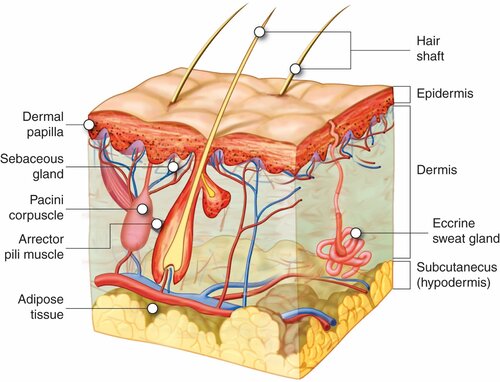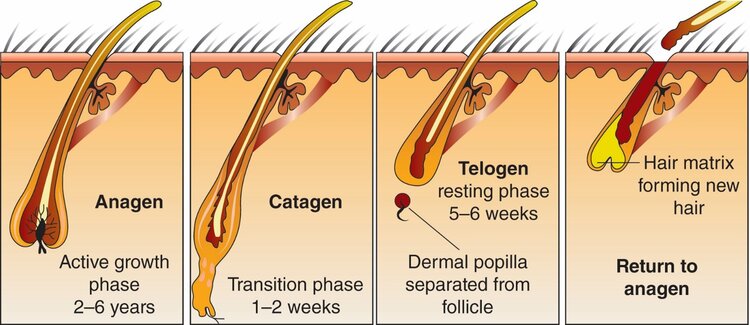HAIR LOSS
WHY DOES IT HAPPEN?

Hair loss can occur for a variety of reasons including:
Stressful events (telogen effluvium)
Hormones and Genes (Androgenetic Alopecia)
Auto-immune attack on hair follicles (Alopecia Areata, Lichen Planopilaris, Lupus, Central Centrifugal Alopecia, etc)
Physical trauma (Trichotillomania, Trauma)
The ability to correctly diagnose the cause of hair loss is important as it directs what kind of treatments can be used. This can often be accomplished by microscopic examination of the hair but may require a biopsy. Androgenetic Alopecia and Telogen Effluvium are by far the most common causes of hair loss. Multiple forms of hair loss often coincide with each other, especially telogen effluvium and androgenetic alopecia.
TREATMENT
Androgenetic Alopecia: Treatment is often multifactorial and aimed at reducing the hormonal influence on the hair follicle and increasing the growth and size of the remaining hair follicles. As soon as treatment is discontinued, you will likely begin losing hair again.
Hormones:
Finasteride (Propecia) is approved for male pattern hair loss and reduces the amount of a hormone called DHT in the hair follicle. This medication can, at times cause sexual side effects such as decreased libido, erectile dysfunction. It is contraindicated in pregnancy. Some people have also reported a depressed mood.
Spironolactone (Aldactone) is generally only used in women and can also have significant benefits in acne. It is a blood pressure medication and can cause decreased blood pressure. If you have issues with low blood pressure you should not take this medication. It is contraindicated in pregnancy and may at times cause menstrual irregularities.
Hair Growth Stimulation:
Minoxidil is approved for hair loss and stimulates hair growth independent od hormones. It is generally used topically due to the low risk of side effects. It can be given orally at low doses, however, it may cause a decrease in blood pressure and lead to hair growth elsewhere. It also rarely causes swelling of the legs or fluid around the heart, a condition called pericarditis. If you have a family history of arrythmia or any cardiac concerns it may be a good idea to speak with your PCP or cardiologist before starting this medication.
Platelet Rich Plasma (PRP) can be injected into the scalp to stimulate hair growth. To obtain PRP your blood is drawn, and the component that contains growth factors is removed and injected into the scalp. There are generally minimal side effects with this treatment other than pain associated with treatment.
Lab Abnormalities:
Certain lab abnormalities may lead to worsened hair loss, particularly abnormalities with your thyroid, androgen hormone levels, or blood counts.
Vitamin deficiency is rarely the cause of hair loss, but ensuring a healthy diet with adequate calories, protein, vitamins, and minerals is important. Making sure that you are not anemic and getting plenty of iron is important. Biotin is important in hair growth, but biotin deficiency is rare. Excessive biotin supplementation may cause abnormalities in other labs.

